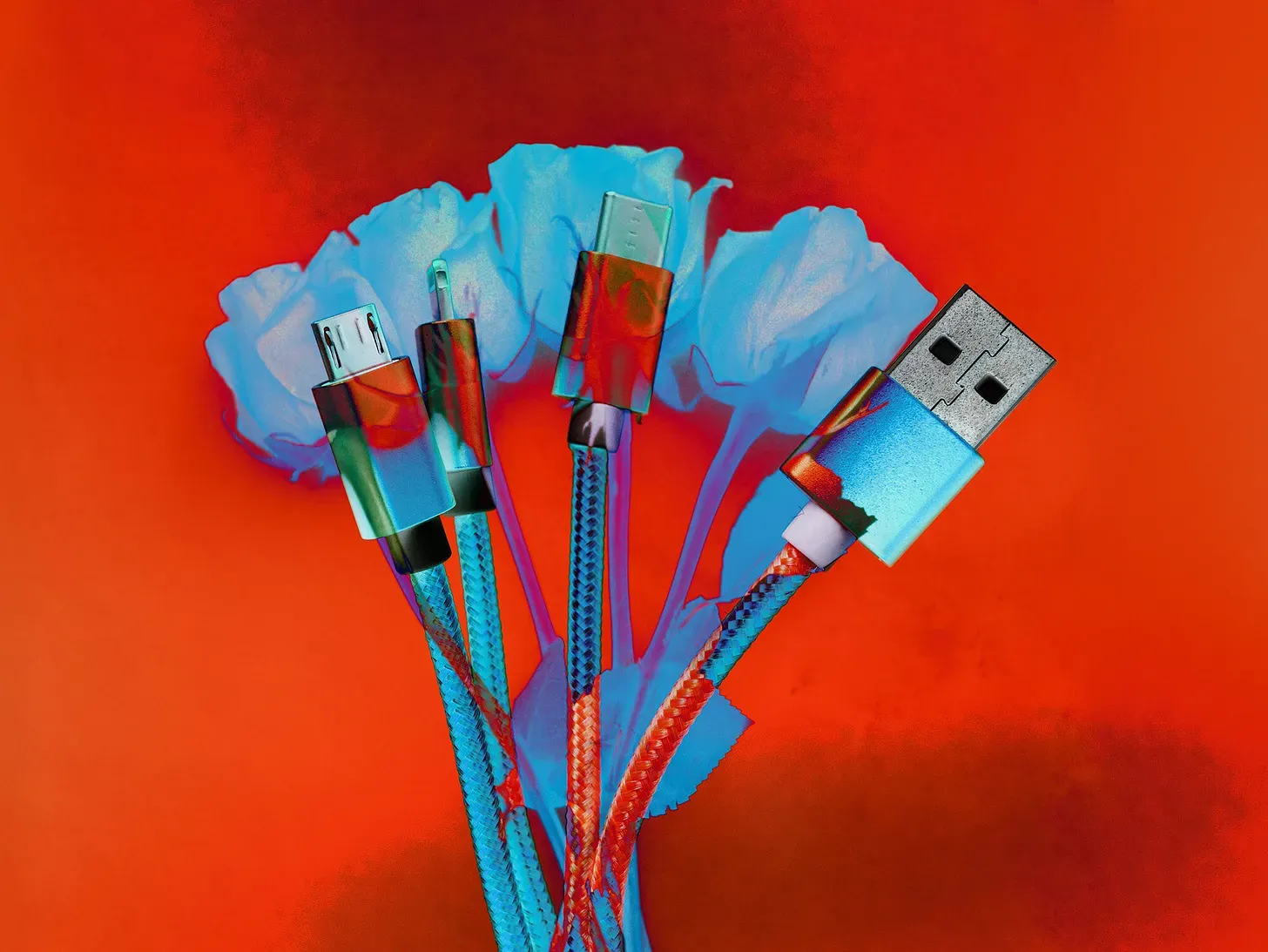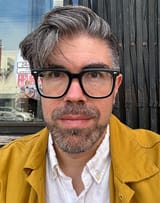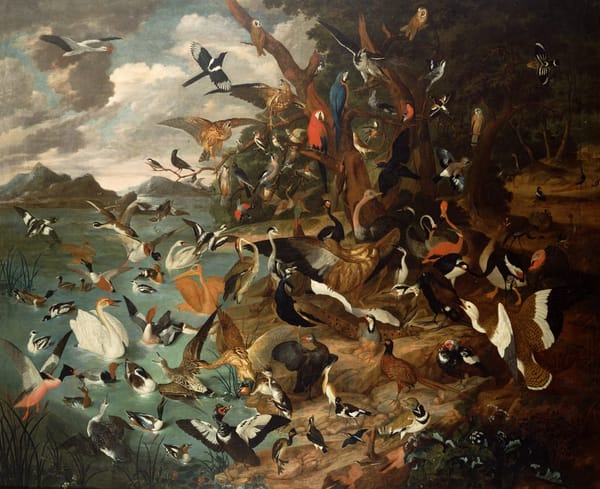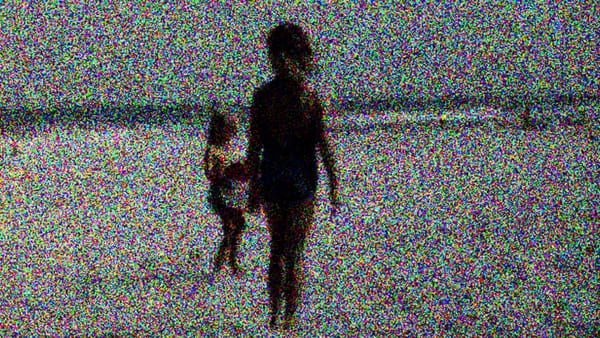Notes from the Algorithmic Sublime
Remarks delivered in response to a question from students in Frank Shephard’s Algorithmic Sublime class at the New School for Social Research, New York City, on November 8, 2024.
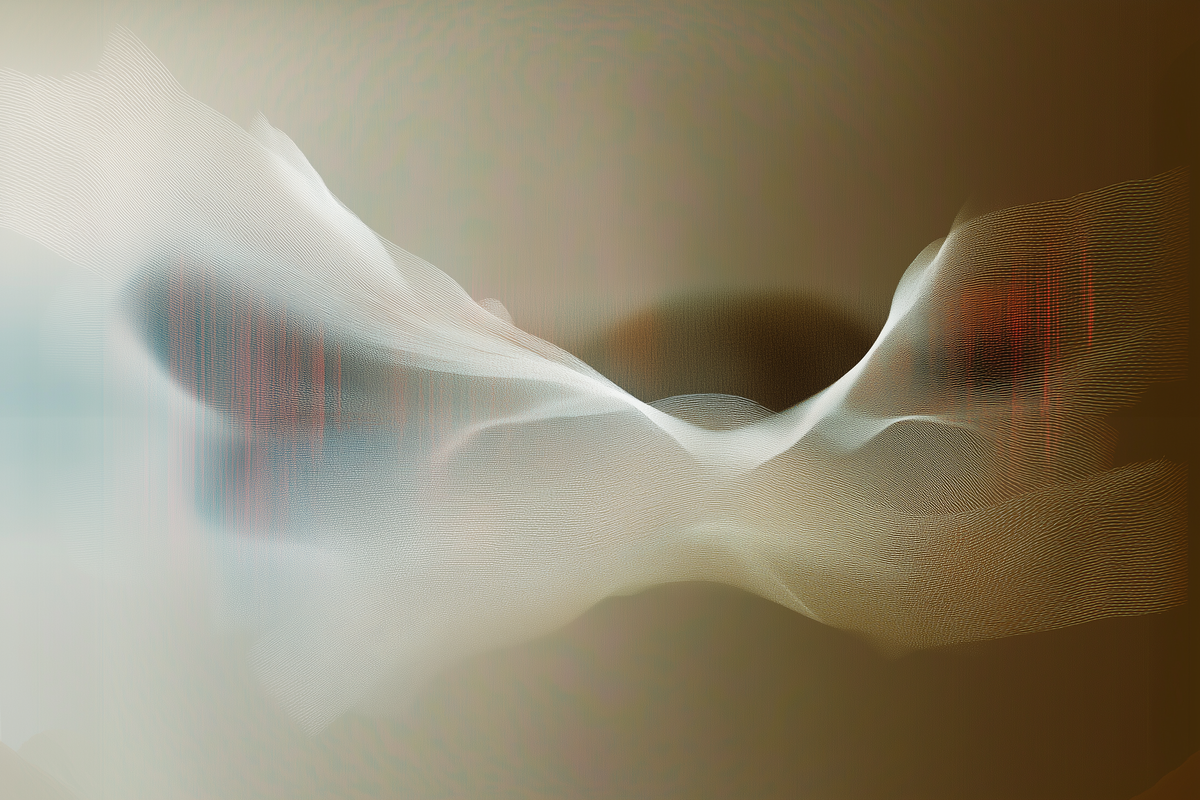
On Data-Mind and Seeing Trees
This week, I am sharing expanded remarks delivered in response to a question from students in Frank Shephard’s Algorithmic Sublime class at the New School for Social Research, New York City, on November 8, 2024. The full, longer transcript is available through the button below.
On Data-Mindedness
How do we decide how to structure our lives, and what are we giving away when we automate those decisions? One of the things I find meaningful here is this idea of the transcendence of order. There is a pleasure in being relieved of pre-existing order and structures. Being overdetermined is nobody's idea of a good time.
I don’t want to be assigned to be a thing. I want to be me, and free to discover who I might become. I want to be who I am and operate freely as that. This is an ongoing process, sometimes requiring revision. My relationship to myself might change over time, and I'd like that to be, as much as possible, on my own terms. And so it is constraining to find myself trapped in a definition of someone else's making that I am unable to rewrite.
Just as my relationship to myself may shift, so too may the things I see in the world. I want to be free to escape my own tolerance for the mundane experiences that I have filtered out. That means, for example, seeing every tree, as opposed to saying “it's a tree,” and ignoring it. Rather, I enjoy that I have some capacity for discovering how to see a tree again, as if it is new, despite having seen a thousand trees before. There is a joy, and a critical part of life, that comes from seeing the tree, or another person, in a new way, to break out of the order we have established.
This order, I think, is the flip side of noise. There's a spectrum there, two poles but it's a circle, and noise is the mid-point between all possible forms of structure. Order can lean into overdetermination, this reliance on categories, systems, and labels that limits possibility. A kind of structural mechanics gets imposed that is resistant not only to change, but the shift of perspective that instigates change. Order requires that, whereas noise challenges that. The thing is, is that all order deteriorates, whether we love the world we've made or not. Nothing freezes still.
Noise, for me, represents the overwhelming complexity of the world. We filter out much of this complexity to make being alive manageable. But what’s on the other side of that filter? When the complexity and vastness of the world impedes on the filter, we experience something we might call sublime. Sometimes this is liberatory, and sometimes this is terrifying.
So my experience of the world as a human being is about not necessarily seeing every tree as just a tree, but discovering how to see a tree again. How to move beyond the filter. The filter is “Order,“ leaning into categories and systems, structural mechanics, whereas noise challenges that, entering into the system and disturbing those conditions. We seem to cling to order in this current cultural period.
Gen AI came about during Covid, a time of great uncertainty. Lots of structures of order were coming apart, and lots of demands were made for clarity. Lots of trauma went unaddressed, and lots of social unrest emerged. AI was a window into control. We didn't need to talk to other people, who were driving us all mad. We could have a conversation with a machine, positioned as an apolitical machine that did not challenge us, and then we could retreat to social media and find reinforcement for our own identities.
So my experience of the world as a human being is about not necessarily seeing every tree as just a tree, but discovering how to see a tree again.
Order is what people crave when the noise is overwhelming, and noise frightens us because it disrupts that order. We say: “constrain that! Please, somebody, come in and limit this!” We want strong borders and clear separation because the world has become so noisy and overwhelming. This is the politics of noise: the noise of the other, the noise we don’t understand, and the desire to force it to conform, to be tamed.
Order is a fine thing, but clinging too tightly to its rules and rituals can cut off the possibility of, metaphorically, seeing a tree differently. So there's something I notice when I am collecting "data," versus being myself in the world. I've written about this before – I used to go out and photograph nature for GAN training, building models of my own photos. In so doing, I learned what I call "seeing like a dataset."
In the data-mind, we are saying that every tree must be labeled a tree. If I want to collect tree data, I need to know what type of tree it is. Ideally, I can have a tree Shazam that I can hold up my phone, and it'll tell me what tree it is. I don't necessarily want to see the tree. I don't want to have an experience of the tree. I want to know what the tree's category and label is. I want, perhaps, to document the tree and gather feedback on it from my social media feeds.
That desire, the desire of data-mindedness is I think, a dangerous one, potentially, because it inoculates us against the sublime. The sublime must be experienced, not quantified. The sublime depends on not being measurable. But we seem to strive to do so, nonetheless. As direct experience becomes more mediated in the everyday, the sublime seems to slip further away into inaccessibility.
The sublime must be experienced, not quantified. The sublime depends on not being measurable. But we seem to strive to do so, nonetheless. As direct experience becomes more mediated in the everyday, the sublime seems to slip further away into inaccessibility.
If we think of static as entropy, the absence of definition when things become noise, it’s life and death. A wall moving past us creates and destroys all at once, and of course, this isn't very pleasant. As information flows expand, we drown in a perception of the world out of control. People want clear rules and definitions, not fuzzy spectrums. The experience of the tree is hard.
I'm reminded of Rilke, who said, "For beauty is nothing but the beginning of terror, which we can still barely endure, and while we stand in wonder, it coolly disdains to destroy us."
What is entropy even? It's that Big Bang. It is the creation of the universe, but it is also the dissolving of the universe. All that has come from the result of this rolling wall of static through the universe that is simultaneously destroying it. How do we respond to that?
Well, one way is to say I will constantly feel the tingling sense of terror at this possibility of simultaneous creation and destruction. But only the beginning of that. The sublime cannot swallow us completely, nor can all the categories fall away, or else we are left in total disorder. We seek only the transcendence that we can still tolerate. When we see beauty, it's not murdering us or giving birth to us, but it's somewhere in between, somewhere that nags in either direction.
That allows us to have that experience at all, because we are terrified if it crosses that threshold. We are facing death or our own birth. Depending on where you are in the cycle, both are arguably terrifying. If everything ordered fell away; we’d lose all sense of ourselves. But that also allows us to change or adapt to complexity. I'd be terrified to witness my own birth, terrified to confront the reality that strips me of all illusions.
It involves an ego death — we have to dissolve to become something else, and if we cannot cling even to our own conception of ourselves, then what is there to stand upon?
But there is also excitement around the birth of new things, so long as they fit into a space of integration rather than destruction. So, this, I think, also comes to this deeper level of this navigation of noise—the simultaneous possibilities of that rolling wall of static and entropy.
How do we react to that fear of death and renewal, all packed into this wall of noise? Well, we either hang out there and linger in it, or we close ourselves off. We say that we narrow the spectrum. AI is a good way of handling the complexity without confronting it, without having to adjust ourselves. We cling to order while the navigation of complexity is filtered for us, into the order we are so eager to preserve.
But if you want to eradicate death from your life, you also end up eliminating the possibility of real beauty, because you're trying not to experience anything that comes close to it. If you preserve order at all costs, you never confront change.
If you want to eradicate death from your life, you end up eliminating the possibility of real beauty, because you're trying not to experience anything that comes close to it.
Death is one of the few universal realities that binds us as humans. We are alone in it together, so to speak. But perhaps we seek to build a narrower world out of fear. We see the label of the tree, or we filter out the tree, and we are unable to really see it, or god forbid, to see other people. AI art is excellent for this because it keeps art within a set of narrow parameters. There is no real risk of accidentally tripping into the sublime. The boundaries are already well-defined.
To me, this is an essential part of how we navigate noise, how we identify noise, what noise means to us, and how we process that—again, politically, aesthetically, personally, and artistically. AI is a mechanism for stabilizing the world according to a prescribed order, but it is an order built from data-mind, not the human aspiration toward growth and freedom.
So I am wary, I suppose, of consuming the results of algorithmic measurement as a model of the world. At least, I worry that it is too often, particularly in its commercial and political applications, tightly calibrated toward limits and constraint rather than new sight, or new possibility.
This response is strongly shaped by my ongoing reading of An Epistemology of Noise by Cecille Malaspina.
Notes on BlueSky
I am doubling down on BlueSky, and if you're keen to find a new social network, I encourage you to sign up. To make it more welcoming, I have created some things to help you get going. Say hi, I am eryk.bsky.social.
- Critical AI Starter Packs – curated lists of people worth reading. There's one here and one here – and another for artists working critically with technology.
- A feed of hype-free tech journalists, which you can pin to your account and click whenever you want a good, solid stream of journalists in the tech space (curated by me, and with a bias toward AI coverage).
- If you don't have a Bluesky account yet, clicking on any of those links will set you up.
- In theory you can even share this post to your Bluesky account by clicking the button below.
Things I Am Doing This Month
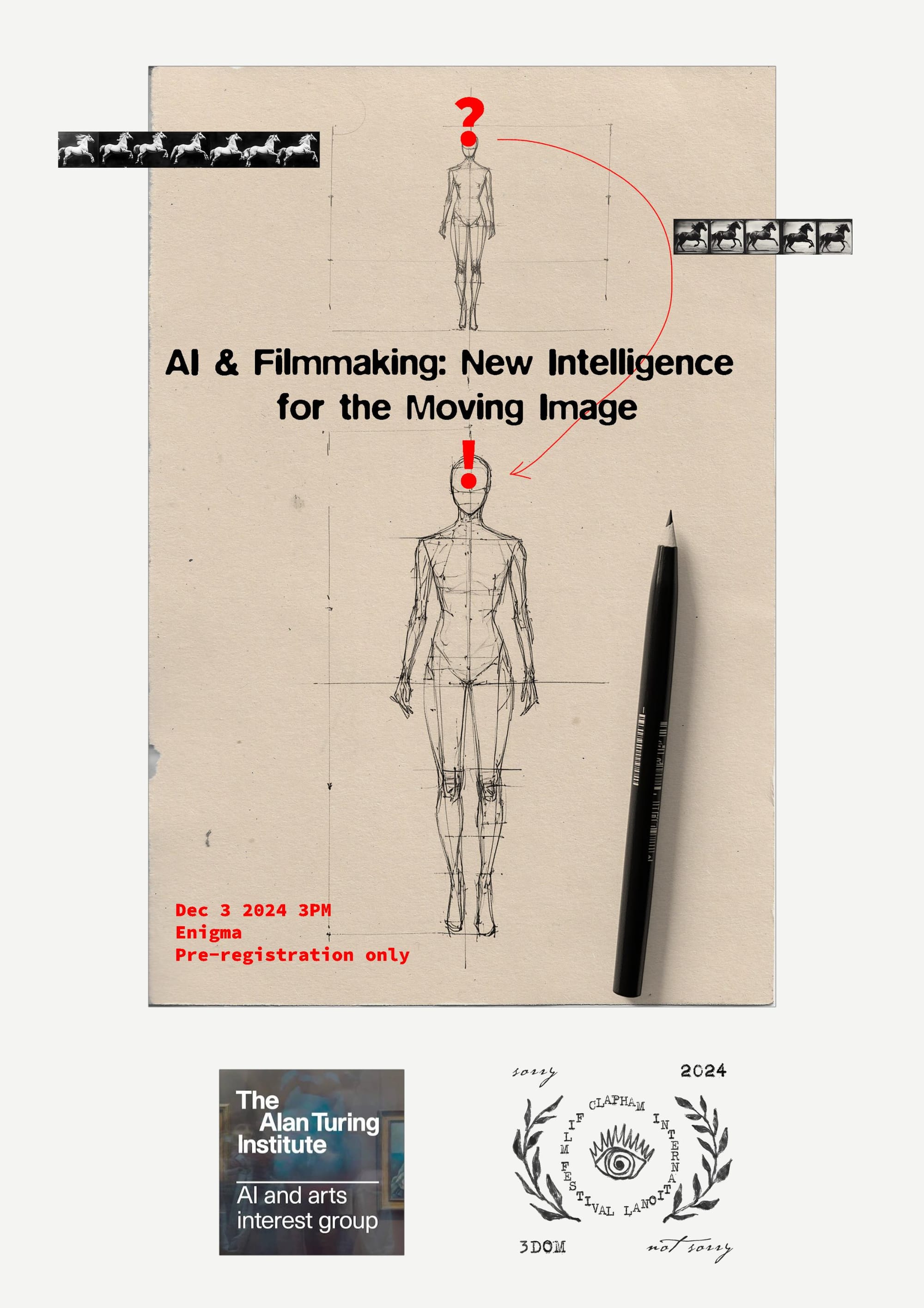
December 3
AI&Arts: AI & Filmmaking,
New Intelligence for the Moving Image
Turing Institute (3pm UK) & Live on Zoom (10am in New York)
The Alan Turing Institute's AI & Arts Interest Group and the Clapham International Film Festival (CIFF) are jointly organizing a film screening and panel discussion at The Alan Turing Institute and online to discuss the use of AI in the filmmaking process.
The festival, curated by AI & Arts member Simon Ball, "showcases some of the best short films with the best-in-class use of AI technology." As part of the CIFF program, I'll be one of the filmmakers to discuss AI with artists, data science researchers and practitioners at the Turing Institute.
My film "Because of You," made in collaboration with Dr. Avijit Ghosh, will be screened. I'll be on the second discussion panel, "Ramifications of AI usage in the creation of art," alongside Leo Crane and Jennifer Ding and chaired by Octavia Sheepshanks.
The event (three panels and screenings) will also be on Zoom. You can register for free below.
